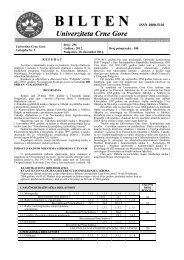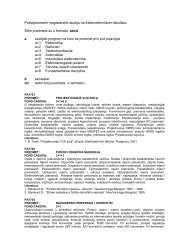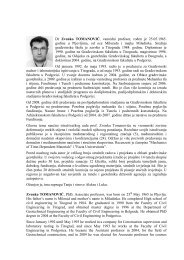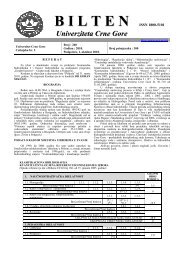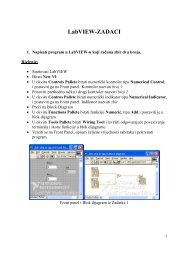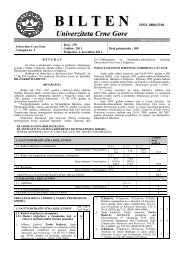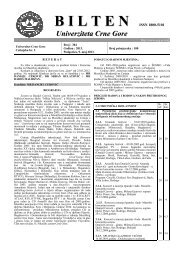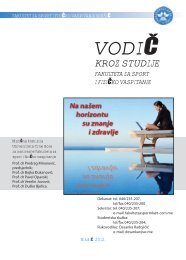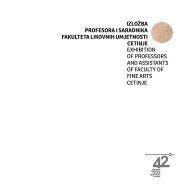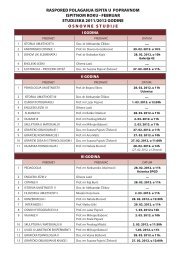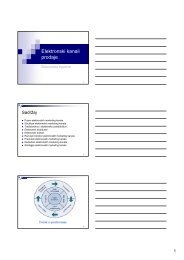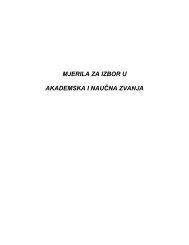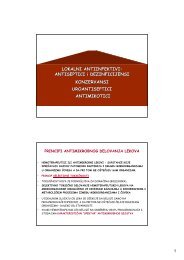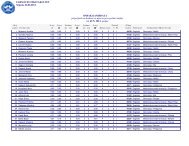WHO monographs on selected medicinal plants - travolekar.ru
WHO monographs on selected medicinal plants - travolekar.ru
WHO monographs on selected medicinal plants - travolekar.ru
You also want an ePaper? Increase the reach of your titles
YUMPU automatically turns print PDFs into web optimized ePapers that Google loves.
Folium Cynarae<br />
either 640.0 mg of the extract or a placebo three times daily for 12 weeks.<br />
No significant effects <strong>on</strong> se<strong>ru</strong>m cholesterol were found. However in subgroup<br />
analysis, significant cholesterol-lowering effects were observed in<br />
subjects with a total cholesterol level of > 210 mg/dl (p < 0.022) (27).<br />
The sec<strong>on</strong>d placebo-c<strong>on</strong>trolled study assessed the safety and efficacy<br />
of a dried aqueous extract of fresh artichoke (25–35:1). Patients received<br />
either 1800 mg of artichoke extract as coated tablets, each c<strong>on</strong>taining<br />
450.0 mg extract, or a placebo. Patients (n = 143) with hyperlipoproteinaemia<br />
– initial total cholesterol of > 7.3 mmol/l (> 280 mg/dl) received<br />
1.8 g of a dried leaf extract per day or the placebo for 6 weeks. Changes in<br />
total cholesterol and low-density lipoprotein-cholesterol from baseline to<br />
the end of treatment showed a statistically significant superiority of the<br />
dry artichoke extract over the placebo (p = 0.0001). Observed reducti<strong>on</strong>s<br />
in total cholesterol levels were 18.5% in those who received the extract<br />
and 8.6% in those who received the placebo after 6 weeks of treatment<br />
(24). The decrease in low-density lipoprotein-cholesterol in the group<br />
treated with the extract was 22.9% and was 63% in those treated with the<br />
placebo. The ratio of low-density lipoprotein to high-density lipoprotein<br />
showed a decrease of 20.2% in the group that received the extract and<br />
7.2% in the group that received the placebo. No d<strong>ru</strong>g-related adverse<br />
events were reported (24).<br />
In a randomized, placebo-c<strong>on</strong>trolled clinical trial, two groups of 30 patients<br />
presenting various dislipidaemic profiles were treated for 50 days<br />
with either cynarin, 2 × 250 mg tablets per day, or a placebo. Cynarin was<br />
able to induce a significant reducti<strong>on</strong> of hypercholesterolaemia (p < 0.001),<br />
the level of pre--lipoproteins (p < 0.01), the /-lipoprotein ratio<br />
(p < 0.01) and patient’s body weight (46).<br />
Several unc<strong>on</strong>trolled studies have found that cynarin reduced total se<strong>ru</strong>m<br />
cholesterol in patients after treatment with oral doses of 750–1500 mg<br />
per day. Oral administrati<strong>on</strong> of cynarin to 17 patients, at a dose of 1000 mg/<br />
day, for 4 weeks resulted in a significant decrease in total cholesterol (15%,<br />
p < 0.005) (9).<br />
Choleretic effect<br />
A randomized, double-blind, placebo-c<strong>on</strong>trolled trial assessed the choleretic<br />
effects of a dry aqueous extract of the leaves (4.5–5:1) in 20 male<br />
volunteers with acute or chr<strong>on</strong>ic metabolic disorders. The treatment<br />
group (n = 10) received a single intraduodenal dose of the extract at a dose<br />
of 1.92 g/day in 50 ml of water <strong>on</strong> an empty stomach, while the c<strong>on</strong>trol<br />
group received a placebo of similar appearance. Crossover to the alternative<br />
treatment followed an 8-day washout period. The outcomes included<br />
intraduodenal bile secreti<strong>on</strong> measured using multi-channel probes. Com-<br />
101



